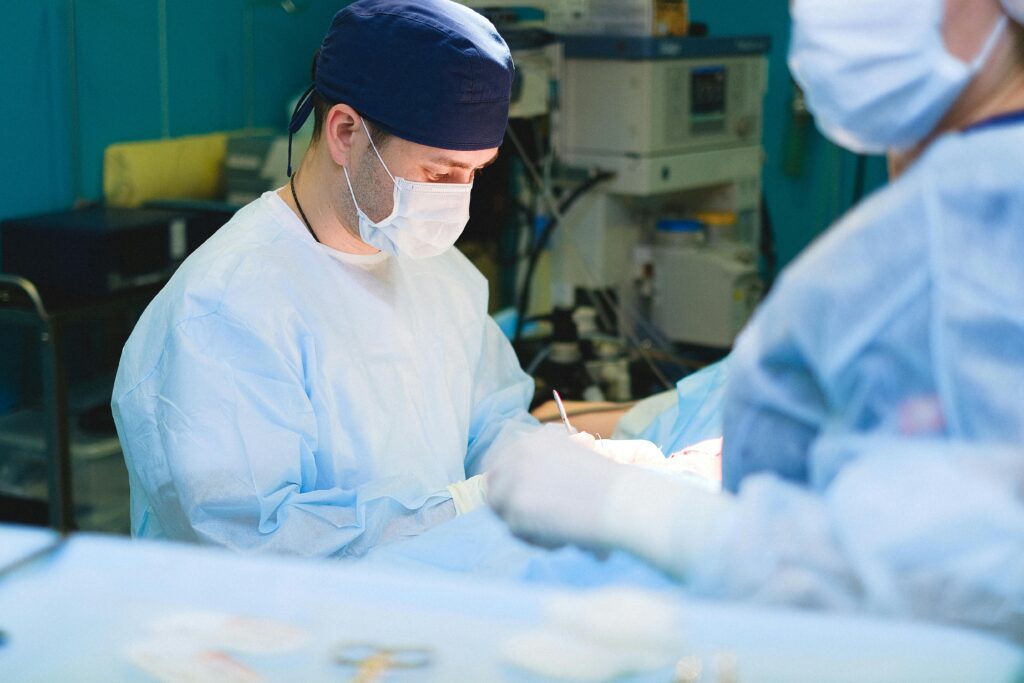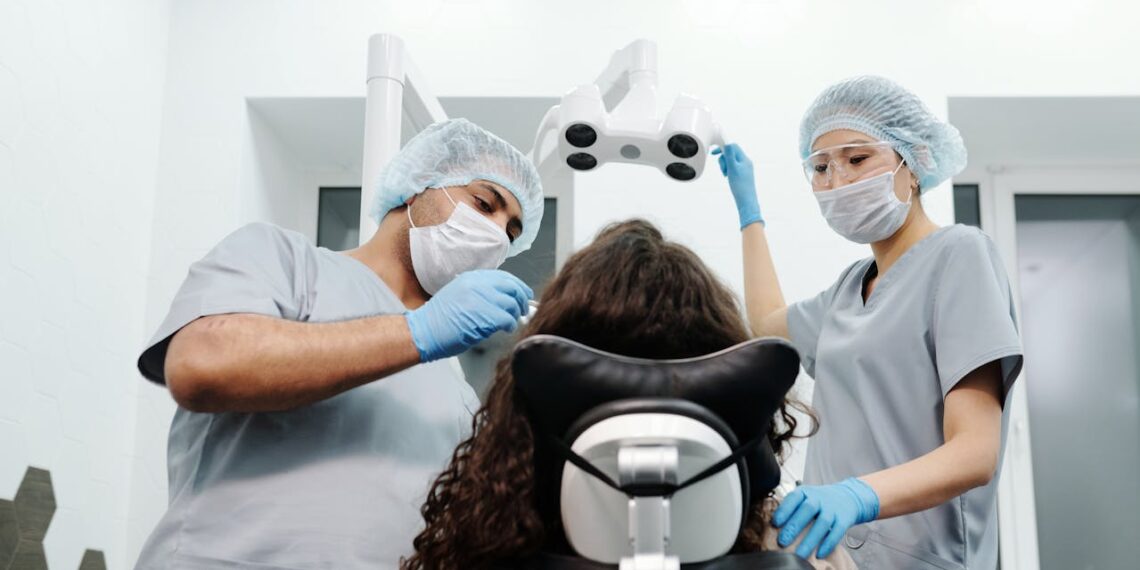Learn about Skills You’ll Need for a Career in Surgical Technology. Surgical technology is one of the professions that stands prominently in health care, offering sterile conditions to the surgeons assisting in surgery, and the supporting of surgically related teams. Find the skills, specialties, advantages, challenges, and future trends about this rewarding career.
The surgical technology profession focuses on an incredibly narrow aspect of health care by providing for surgery to take place. The scrub techs, also known as surgical technologists, and often operating room technicians are responsible for the operating room remaining aseptic, well-organized, and fully prepared for the surgical event to take place. They maintain the foundation upon which the safe and efficient setup for surgery stands. This occupation plays a critical role in the life of any hospital operating room and outpatient surgery center.
What is Surgical Technology?
Surgical technology is a human service profession that works to help in the provision of sterility and in preparing the operating room in advance of the surgeons’ petitions. This involves all actions and activities in the hospital operating room involving scrub techs, operating room techs, or simply surgical technologists. This involves the initial sterilization for a safe and efficient surgery set-up.

The Importance of Surgical Technologists
Essential is the communication of surgical technologists with all healthcare workers involved in the surgical procedure; surgeons and nurses. Only so that together, they can smoothly perform and coordinate any surgical procedure when a surgical technologist can respond adequately to any alterations or complications arising within the confines of the operating room.
Skills You’ll Need for a Career in Surgical Technology
1. Attention to Detail and Sterile Technique
Surgical technology works on exactness. Surgical technologists are required to perform their duties with utmost precision and caution because all sterile techniques need to be followed: disinfecting everything from instruments to surfaces to avoid contamination and infection during such procedures, thus protecting patient life and enhancing surgical prognosis.
2. Anatomy and Medical Terminology
Surgical technologists need a sound knowledge of human anatomy and medical terminology. They must recognize body structures, appreciate surgical procedures, and correctly communicate with the medical team members using the proper terms to ensure safe operations efficaciously.
3. Effective Communication and Teamwork
Communication between a surgical technologist and the surgeon, nurses, and all other healthcare workers is constant. Such that they can efficiently come together to coordinate the success of any surgical procedure alongside the surgical technologist’s proper response in case of any alterations or complications inside the operating theater.
4. Problem-solving and Adaptability
Surgical settings can turn challenging at times. As such, surgical technologists must possess excellent problem-solving abilities and adaptability to changes along the surgical course, mitigating delays while considering patient safety should any unforeseen events occur.
5. Hand-eye coordination and Dexterity
Technologists work with high dexterity and eye-and-hand coordination. They perform their function in a rather demanding and often fine-motor-challenging environment. They must precisely place surgical instruments to maintain the surgeon’s clean field during the procedure for the sake of the success of the operation and safety without any possible subsequent complication.
6. Infection Control Knowledge
Well-versed in infection control protocols, surgical technologists maintain sterile conditions and sterilize instruments to prevent infection, thereby lowering the probability of an infection of the surgical site and heightening patient safety during and following a surgical procedure.
7. Ethical and Professional Behavior
Surgical technologists must uphold ethical standards and show professional behavior. They participate in the care of patients and their confidentiality and respect; thus, every action should incorporate a high level of integrity and professionalism on the part of the surgical technologist in every aspect of their duties.
8. Continuous Learning and Adaptation
In every area of work, advances are taking place, so surgical technologists must keep abreast with continuing education. This will help them understand new procedures, techniques, and technologies, thereby ensuring continued competence and maximum delivery of patient care.
Advantages and Challenges of Being a Surgical Technologist
Advantages of Being a Surgical Technologist
- Direct Patient Impact: Surgical technologists take a more direct approach to patient care by providing sterile environments and assistance during the actual surgery procedure. Their input into the processes leads to successful surgical outcomes, contributing to a better state of health and quality of life for patients, hence, making their profession rewarding.
- Good Earning Potential: The surgical technologists themselves earn very handsome salaries with even the possibility of earning very high salaries based on experience, education, and specialization. The average salaries that they can earn are enticing in themselves, but being certificated or working especially in certain settings may further increase one’s earning potential.
- Job Security and Growth: The demand for surgical technologists is projected to increase with the aging population and the proliferation of surgical procedures. These increases imply job security and ample openings for anyone going into this profession or searching for job stability.
- Career Advancement: They can further advance as surgical assistants and surgical administrators. Continuing education and certification shall allow entry into subspecialties such as cardiovascular surgery, neurosurgery, and organ transplantation.
- Dynamic Work Environment: The daily life and responsibilities of a surgical technologist may vary based on the designated area. From high-stake emergency surgeries to planned procedures, it continues to throw challenges at them, which keep the job engaging and ever-changing.
Challenges of Being a Surgical Technologist
- Physical Demands: The work of surgical technology technologists requires standing long hours and sometimes for a very long period. They must withstand the lifting of heavy instruments, which takes physical endurance and stamina throughout an operation.
- High-Pressure Environment: Operating rooms are stressful environments, and surgical technologists must act quickly and efficiently while remaining accurate; mistakes or delays can have serious consequences. Therefore, focus and composure are qualities a tech must possess to hold against the pressures of work.
- Emotional Stress: The job is nerve-wracking as it’s sure to have emotionally challenging moments, especially if the surgical operations are high-risk or when complications are expected to arise. A surgical technologist may encounter traumatic injuries or grave medical conditions through which he experiences emotional burnout and mental stress.
Different Specialties in Surgical Technology
1. Cardiovascular
Surgical technologists performing cardiovascular surgery also assist in any heart surgeries and may include performing coronary artery bypass and valve repair. They facilitate maintaining sterile fields, preparing various instruments, and supporting the team in the complexities of surgical heart and blood vessel procedures.
2. Orthopedics
Surgical procedures involving bones, joints, and muscles constitute the field of specialty of the surgical technologist in orthopedics. Some of these subspecialties involved include traumatology, arthroplasty, and spinal surgery. Here, they all prepare the apparatus that will be used in the surgical process and ensure a clean environment. All these will take place as each procedure is handled. These technologists enable an individual’s mobility and function to be restored or improved.
3. Trauma/Emergency
Under orthopedics, surgical technologists assist in surgeries of bones, joints, and muscles including the fixing of fractured limbs, joint replacement, and spinal procedures. They keep all the instruments prepared throughout this entire surgical procedure and ensure the sterile field as well as help to regain or enhance a patient’s potential for mobility or function.
4. Neurosurgery
The surgical technologist assists in procedures involving the nervous system, brain, spine, and other primary neurosurgical procedures. The surgical technologist would assist with the preparation of the surgical instruments, maintenance of the sterile field, and support for the surgeon in delicate procedures concerning the well-being of the nervous system and safety of the patient
5. Organ Transplants
Kidney, liver, and heart transplant organ transplants are assisted by surgical technologists. They get instruments ready maintain sterile technique and assist the surgical team from the beginning until the end to ensure the best possible outcome of the transplant procedure.
6. Pediatrics
Pediatric surgical technologists assist the child in every type of surgery from minor to major. The tasks include instrument preparation, asepsis maintenance, and assistance to the pediatric surgeon to ensure a safe and comforting atmosphere for their tiniest patients.

7. Plastic Surgery
What surgical technicians do in plastic surgery applies to both reconstructive and cosmetic purposes. So, these practitioners decontaminate the operating area and sterile instruments while assisting the medical teams in various complex procedures that put back anatomic structures and beautify the appearance.
Importance of Surgical Technology in Healthcare
Without surgical technologists, it would be much more hazardous and chaotic. They help in working aseptically and maintaining efficiency and extend pertinent assistance to the surgical team, thus serving to improve the overall outcomes for the patients.
Future of Surgical Technology
The new trends in surgical technology are robotic surgery and artificial intelligence. With new inventions being monitored closely by surgical technologists, the future of minimally invasive will become even more precise.
Conclusion
Surgical technology today is an important factor that makes a successful surgical operation and works to maintain patients’ health and welfare. These are the professionals who maintain the sterile environment and assist during surgery and instrument handling accurately and safely. This demand for experts necessitates the rewards that a surgical technologist has in a rewarding field, given that detail-oriented, dexterous, and compassionate patient care practitioners will indeed find their ideal field.






